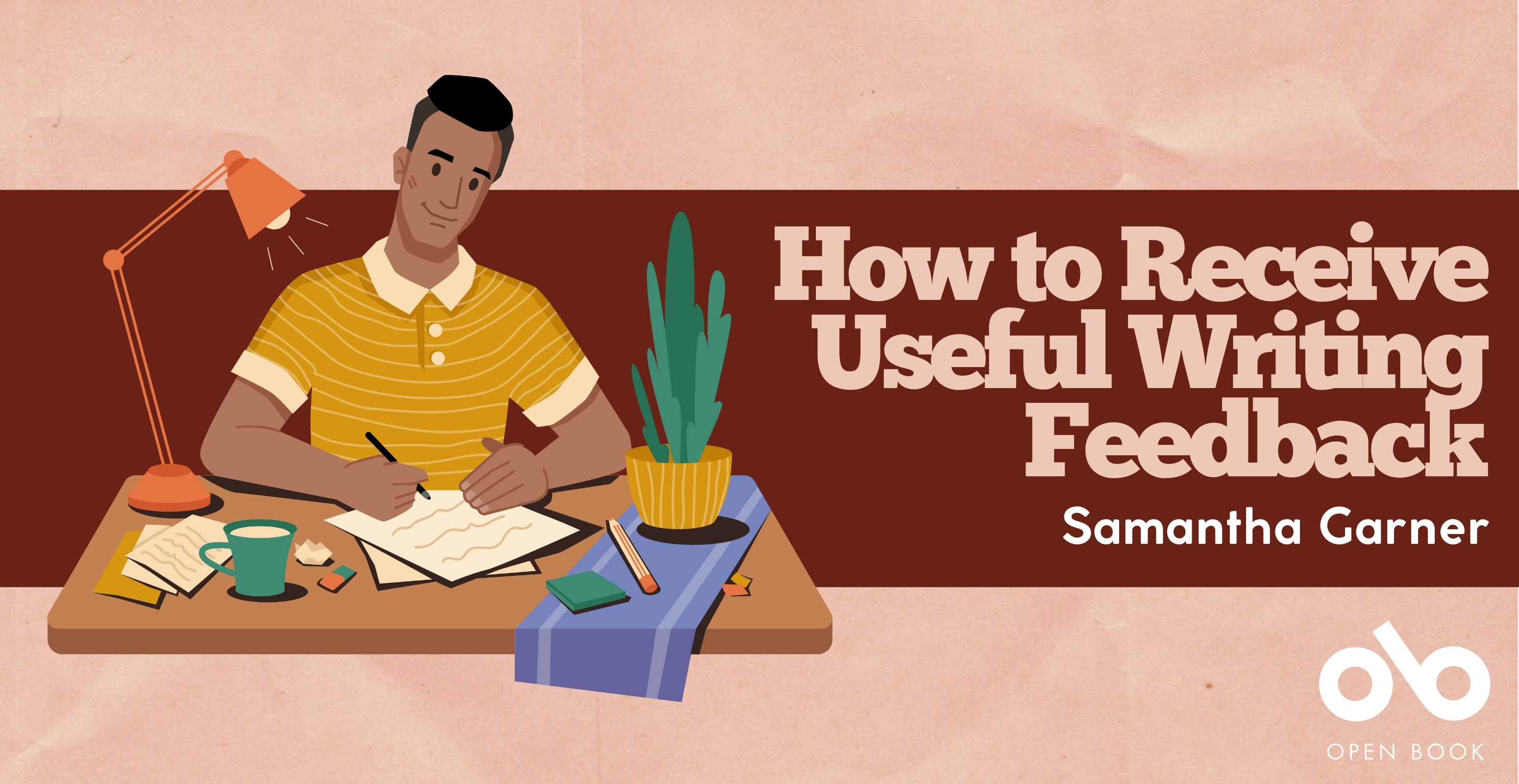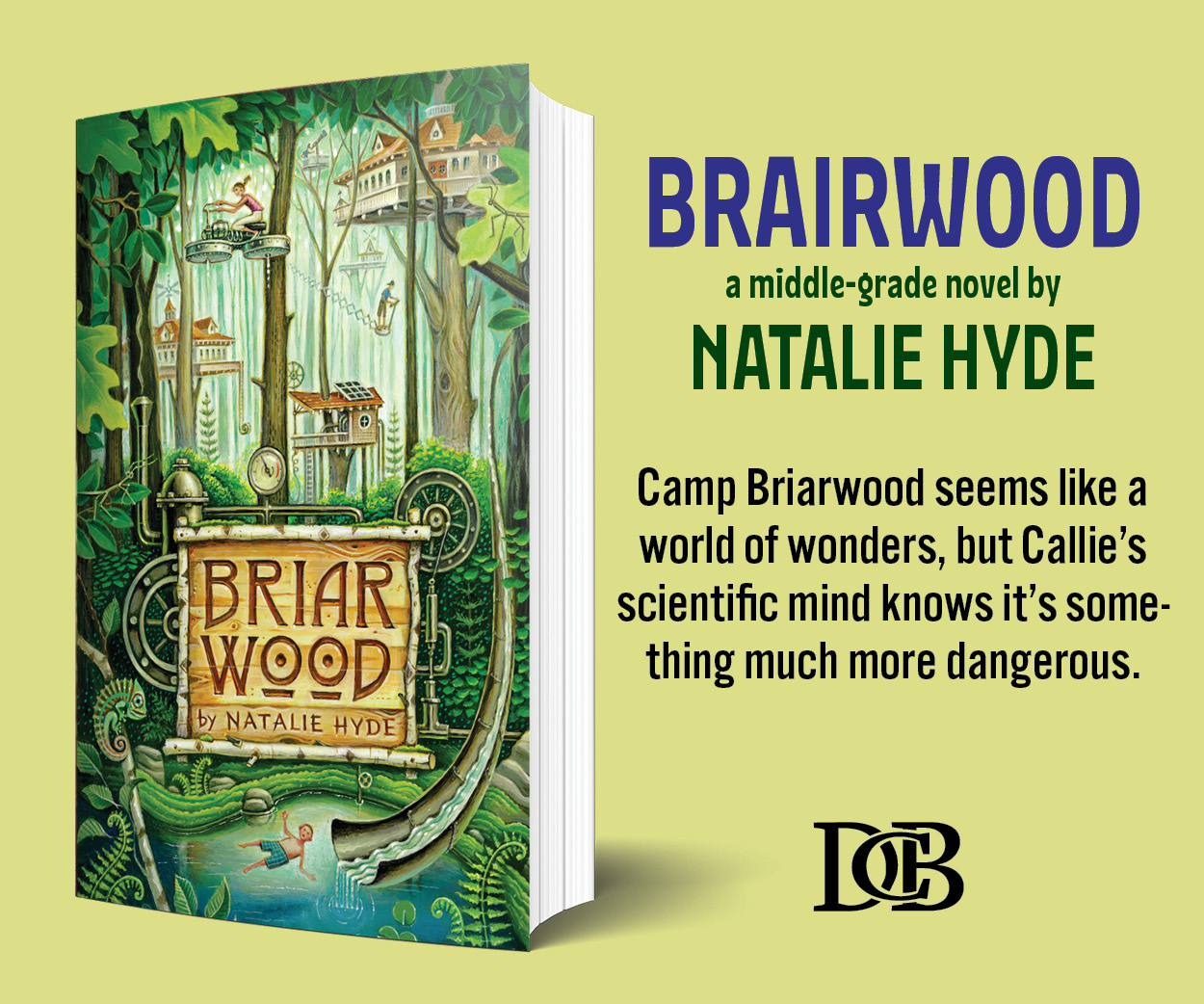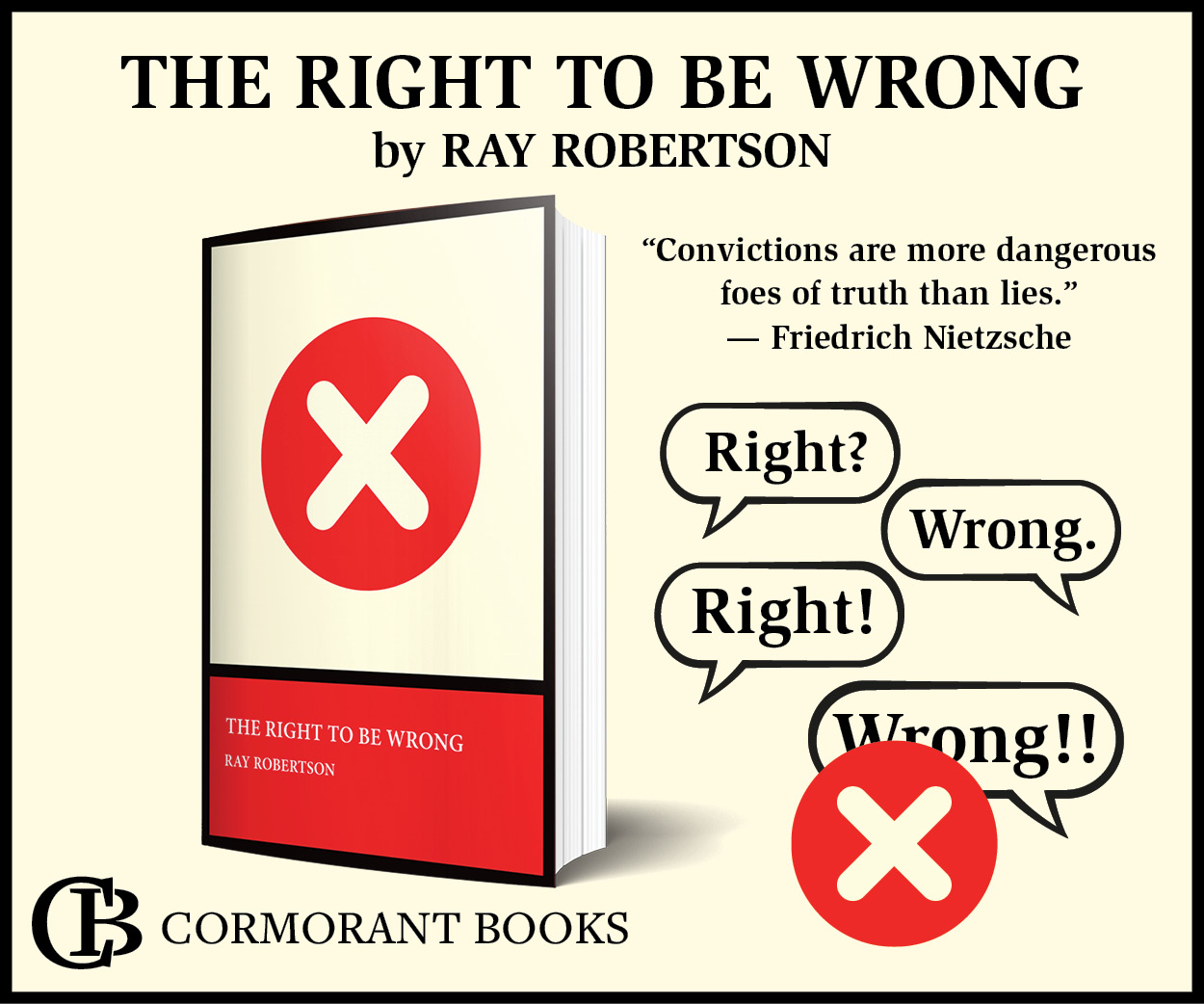How to Receive Useful Writing Feedback
By Samantha Garner
For many writers, giving and receiving feedback can feel like the most difficult part. It engages a part of our writerly brains that exists a bit outside the work, much like the editing process.
In my last column I shared some tips for giving constructive writing feedback. But if you’re a writer, how can you be sure to get constructive feedback that takes your whole project into account? Here are some tips.
How to receive useful writing feedback
Whether you’re a new writer or a seasoned one, getting feedback from a third party can help you strengthen your work. But it can also feel very vulnerable. It can also be difficult to sift through the feedback you get and learn what’s helpful and what won’t improve your work.
First I recommend you get clear on what kind of feedback you’re looking for, whether it’s a big-picture review of the story overall, advice on specific plot points, or something else. And it’s okay to have more than one aspect you want feedback on, but let your reviewer know if any are higher priority than others. For example, you might be most interested in whether your plot is engaging, but also want to know if your magic system makes sense within the world of the story.
Also, it’s helpful to provide your reviewer with any context that’ll help them answer the specific questions you have. You don’t have to give them a pitch letter or anything like that, but let them know what your story’s about overall, what your intentions are with the project, and who your audience will be. If you’re only sending a portion, these details will be even more important to help the reviewer understand the project.
Once your reviewer knows what they’re reading for, agree on a timeline, and leave them to it. I know it can feel nerve-wracking to put your writing out there and wait for feedback, but try to keep your brain occupied with something else until your agreed-upon deadline.
Now here I should pause and give you another piece of advice that’ll help the process overall: get feedback from a few people. But not too many. I have a writing group that reads bits of my novels as I write them, but I also like to hire two or three beta readers or editors once the first draft of my manuscript is ready.
Okay, so now you have your feedback. I won’t lie—this stage is the hardest. As much as I know (I know!) that I asked these people for help, sometimes it stings. Even though the feedback is always insightful and delivered respectfully, there’s always one innocuous thing that makes me think, “I knew it. I’m a fraud.” That’s normal. It sucks, but it’s normal. If this happens to you, feel your feelings and walk away for a while. Remember that you’re not alone and you’re not a fraud.
Your CanLit News
Subscribe to Open Book’s newsletter to get local book events, literary content, writing tips, and more in your inbox
Then, when you feel a little more grounded, read your feedback over again. Think about the reactions you had the first time around. Was there anything that made you feel uncomfortable or anxious? Dig deeper. Did you feel this way because it would involve a lot of editing/rewriting/rearranging, or because it would move your story in a direction that would change the heart of it?
If it’s the latter, I’m not going to tell you to ignore it. Just put it aside from now. Maybe sleep on it. But if it’s the former, dig even deeper. Imagine yourself already having done all that work to incorporate that feedback. Is your story better? Worse? Unchanged? I can’t tell you the amount of times I resisted valuable feedback simply because of all the stitches I’d have to unpick in my manuscript. Sometimes that’s truly all it is. In any case, honestly assess the pros and cons of the feedback. Sometimes we can be resistant to change with creative projects—even if it’ll benefit the project overall.
Another thing you can do to help you decide on what feedback to incorporate is to look for commonalities. This is part of the reason why I suggest getting feedback from more than one person. For example, if most of your reviewers say a certain plot point seems to come out of nowhere, that’s a sign that it could be important to consider.
Compare your feedback to your own list of priorities. Which suggestions will be most impactful to the project? Which suggestions address the most pressing concerns you had? If you have any questions on the feedback you get, focus on the things that’ll actually give you clarity on the project.
When it comes to incorporating the feedback, resist hacking and slashing right away. I’m the world’s most impatient person so I know how difficult this can be, but we really do need time to let the feedback filter in. You may still feel a bit tender about some of the critiques, so take the time you need to process everything. This is also a great chance to reorient yourself to your own writerly goals, vision, and voice.
Remember that this is your writing. Only you can write this particular project in this particular way. Nobody says you have to incorporate any of the feedback you get (though it’s not always a great idea to discard everything!). Show gratitude to your reviewers for their time and attention and evaluate everything fairly, but stay true to your vision overall.
I’m not too proud to admit that asking for feedback on my work is scary. But every time I do, it unlocks something that strengthens the project in a way I couldn’t do on my own.
For firsthand accounts of what it’s like to work with beta readers, check out Lindsay Zier-Vogel’s column The Pros and Cons of Beta Readers.
The views expressed by Open Book columnists are those held by the authors and do not necessarily reflect the views of Open Book.
Samantha Garner is the author of The Quiet is Loud, shortlisted for the 2022 Kobo Emerging Writer Prize. A Canadian of mixed Filipino-Finnish background, her character-driven fantasy novels explore themes of identity and belonging. When not writing, Samantha can be found daydreaming in a video game or boring a loved one with the latest historical fact she’s learned.
She can be found online at samanthagarner.ca and on Instagram and Twitter at @samanthakgarner.



